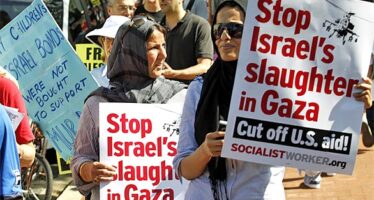ABDULLAH OCALAN: TIME FOR PEACE
![]()
Normal.dotm 0 0 1 811 4625 .. 38 9 5679 12.0 0 false 14 18 pt 18 pt 0 0 false false false /* Style Definitions */ table.MsoNormalTable {mso-style-name:”Tabella normale”; mso-tstyle-rowband-size:0; mso-tstyle-colband-size:0; mso-style-noshow:yes; mso-style-parent:””; mso-padding-alt:0cm 5.4pt 0cm 5.4pt; mso-para-margin:0cm; mso-para-margin-bottom:.0001pt; mso-pagination:widow-orphan; font-size:12.0pt; font-family:”Times New Roman”; mso-ascii-font-family:Cambria; mso-ascii-theme-font:minor-latin; mso-fareast-font-family:”Times New Roman”; mso-fareast-theme-font:minor-fareast; mso-hansi-font-family:Cambria; mso-hansi-theme-font:minor-latin; mso-bidi-font-family:”Times New Roman”; mso-bidi-theme-font:minor-bidi;}
I respectfully greet all the readers of il manifesto and my friends in Italy.
My particular thanks go to your newspaper for giving me this opportunity to express my opinions.
Italy is a country that holds a most particular meaning for me. Not only because in November 1998 my quest for a democratic solution to the Kurdish question led me to Rome, but also because of the high opinion I hold of Italian history and the struggles for liberation that have taken place there. In my most recent book, “The Democratisation of Middle-Eastern Culture”, I devoted several pages to Italy and its role. I hope to be able to share it with my readers soon, although direct communication may not always be possible due to my being in solitary confinement.
On another occasion I would like to discuss the international conspiracy that brought me from Rome to the island of Imrali. To discuss not only the historical significance of this event for the Kurds, but also the power structures of the global system and the nature of international relations. I think this could be of interest to the progressive side of European public opinion.
I personally learnt historical lessons from the 3-month odyssey that took me to Athens, Moscow and Rome. The central concept of my most recent books is that of the “capitalist modernity” which, with its 1000 masks and weapons, I was able to witness close-up during my adventure. If this hadn’t happened I would never have drawn the conclusions that I did. Perhaps I would have remained attached to a simple, statist-type nationalism, or would have become part of a classic left-wing movement like so many before me. As a socio-scientifically thinking individual I don’t want to draw any definitive conclusions, but I assume that I would never have been able to arrive at my current analyses.
I would like to underline a fundamental conclusion. The true strength of the capitalist modernity lies neither in its money nor in its arms. Its true strength is represented by its almost magical ability to suffocate in its own liberalism all utopias, including the strongest and most recent utopia – socialism. Until we are able to understand how the whole of humanity can be trapped in the vortex of liberalism, even the most self-confident school of thought will be incapable of being anything but a lackey to capitalism, let alone the possibility of fighting it.
I am fighting with the Kurdish people, not only for our identity and our existence. Our battle is also against the dominant ideology of the capitalist modernity and is an attempt from Mesopotamia, the cradle of civilization, to contribute towards the creation of an alternative which we call “democratic modernity”.
In the context of global terrorism paranoia, we see the attempts by the Turkish government to label our democratic struggle as “terrorist” as just the same old propaganda game. The Turkish State’s mentality to date of denying the Kurdish people their fundamental human rights, is not so different from the uniformising fascist, authoritarian mentality that in the twentieth century established itself in Germany and Italy.
To this day the Turkish State perpetrates political, economic and cultural genocide against the Kurdish population. The Kurdish people opposes this with obstinate, organised resistance. I continue my quest for a peaceful, democratic solution against the chauvinist, fascistic nationalism which has, in the meantime, advanced its lynch-mob culture wherever Kurds live. From 1993 onwards I have made a number of proposals and tangible steps. The unilateral ceasefire in 1999 – the year of crisis – was respected despite various attacks, the withdrawal of guerrillas from Turkish territory and the symbolic peace delegations from Europe and from the Kandil mountains, are only a small part of the peace efforts. The fact that in 2009 the guns have been unilaterally silent and a delegation of guerrillas arrived in Turkey from the Kandil mountains should serve as proof of the continuity and perseverance of my efforts for peace.
Despite everything the stance of the Turkish State has not changed. Our efforts in the direction of peace continue to be underestimated and are taken as a sign of weakness. Military operations and attacks on the population continue. All the state organs continue to shout in unison: “eliminate them!” The current AKP government is carrying out the most insidious diversionary manoeuvre of all in trying to make the European states believe that they are working towards democratisation and a solution to the Kurdish question.
It is this government that has passed laws, thanks to which Turkish prisons are full of Kurdish children and thanks to which in Sirnak a prosecutor could demand 305 years of imprisonment for five children. Thanks to this government it was possible to outlaw the Party for a Democratic Society (DTP). And it is this government that continues to humiliate Kurds, taking Kurdish mayors away from their electorate in handcuffs, something that recalls images of the deportations to concentration camps.
The Kurdish people will never stop fighting for their fundamental rights. They will continue to organise themselves with the aim of regaining their dignity and a life of freedom. The will gain that freedom fighting with democratic means, but also reserving their right to self-defence. I have not the slightest doubt of this.
In concluding this article, written at the beginning of a new year, I would like to wish the Italian people a happy 2010. That this year may bring liberation to oppressed peoples, classes and sexes.
Related Articles
Janet Biehl tells of her involvement in solidarity with Kurds
![]()
Author and artist Janet Biehl spoke about her involvement in solidarity with the Kurdish Freedom Movement. Dr. Jeff
PJAK, the Kurds and Iranian elections
![]()
During the last weeks much has been said about Iran, because of the rageful demonstrations and riots that followed the contested results of the presidential elections, seriously challenging the establishment and government of the Islamic Republic of Iran. But few or nothing has been said, in western media, on the effects of this electoral process on the Iranian Kurdish population, amounting to an esteemed number of 5 millions people (on a total Iranian population of about 70 millions), and mostly concentrated in the north-eastern regions of the country, the ones bordering Turkey and Iraq. Moreover, it should be kept in mind that the Iranian Kurdish region still holds a special symbolic value for the whole of Kurdish population: it was here, in the city of Mahabad, that the first Kurdish republic was established between 1945 and 1946, with the support of Soviet Union.
ETICA E ESTETICA – Iñaki Egaña
![]()
Nell’articolo precedente che male titolai “L’anti racconto di Natale” quando sarebbe stato meglio, per esempio, “Altro racconto di natale”, ha




